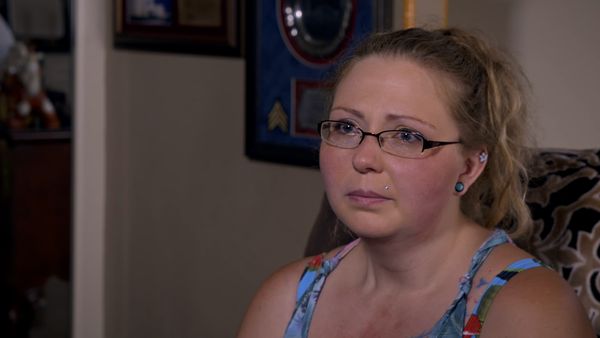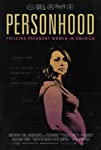Eye For Film >> Movies >> Personhood (2019) Film Review
Personhood
Reviewed by: Jennie Kermode

It's understandable that some people oppose abortion, one of Jo Ardinger's contributors states in this film. There are arguments on both sides of that debate. But what happens when the personhood of the unborn is advanced to a degree that means pregnant women lose theirs?
This is not a film about abortion. It's a film about pregnant women who want to give birth and keep their babies. It looks at the way that, in several US states, legally recognising a foetus as a human being with a full set of rights has led to such women being treated - and even openly described - as mere hosts, to the point where their movements and activities are forcibly restricted. Media scare stories about drug addicts who might give birth to deformed or addicted children have again and again paved the way for laws that are applied in a much more far-reaching way.
You may have heard of cases like that of Marshae Jones, who was charged with manslaughter for getting into an argument with a woman who then shot her, leading to the death of her foetus; or Purvi Patel, who was charged with deliberately killing her baby after she started bleeding and suffered a stillbirth in hospital. These may be extreme, but arrests made on similar charges are a lot more common than most people think.
Ardinger's documentary centres on the experiences of Wisconsin woman Tammy Loertscher who, like many US citizens, resorted to illegal drugs as a substitute for medication after losing her health insurance. She didn't deliberately take them whilst pregnant; rather, on discovering that she was pregnant, she immediately stopped taking them and informed her doctor about what had happened because she wanted to minimise any risks. What followed was an escalating series of court demands which led to her being sent to prison - pretty much the worst environment in which to go through a pregnancy - with no prenatal care. After her baby was born - thankfully healthy and unharmed - she was added to the child abuse register, making it impossible for her to get work. But though she may have seemed like somebody who could easily be bullied, Tammy fought back, moving out of state to avoid further harassment and suing to clear her name.
How do situations like these come about? Are they a result of misogyny and malice, or of good intentions and unforeseen consequences? Ardinger highlights the case of a woman who pushed for laws to protect foetuses after she miscarried due to being hit by a drunk driver who received scant punishment. The horror of her experience highlights the fact that there can be a strong emotional drive to recognise foetal rights, and balances emotive arguments against them - but of course, that doesn't tell us much about their practical function, a fact of which the documentarian is well aware.
The voices of right wing politicians who feel strongly that the rights of the unborn ought to come first are also heard here. What's striking about them, however, is the absence of proposed mechanisms for protecting those who are adversely affected by them when pregnant. Their own proponents, given enough rope, make them sound as if they are being developed with overreach in mind. The proximity of these beliefs to patriarchal religious traditions suggests that, at best, there is a failure to attach much value to women's bodily autonomy. Perhaps more telling, however, is the lack of any apparent consideration of the impact that incarcerating a pregnant woman could have on the developing child.
Taking in additional issues such as the greater impact of such laws on poor women and women of colour, Personhood makes a distinctive contribution to the ongoing discussion about women's rights in today's America. Its strength lies in its specificity and the way it illustrates that laws around pregnancy are just as relevant to those who want to carry to term as to those who don't. Many viewers will find it chilling.
Reviewed on: 16 Jan 2021















